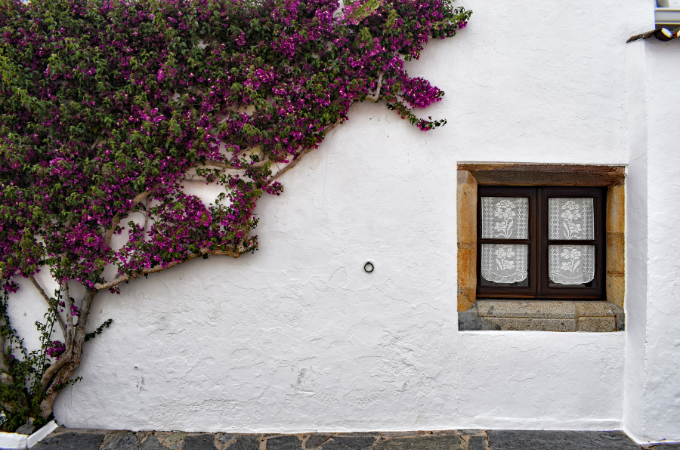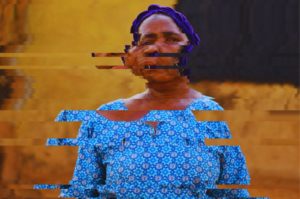
I imagine I will find my grandmother, sitting beneath the purple bougainvillaea a stone’s throw away from her house, gaping at the opening where the gate is supposed to be, but isn’t. Probably, she will be poking holes around her perimeter with her walking stick, which she has never needed to use, but has always carried, making pop beats with the ground. On her right will be a mahogany stool, inscribed 1972 on one side, patterned with thousands of shapeless lines from what would have been a sharp object. On it, a caramel mug, filled to the brim and steaming hot, such that she will have to lower her face very close to the stool for her first sip.
She will look at me with my palm gripped tightly in hers, long enough for me to feel the scratchy feel of her calluses, itchy even. When I ask whether she remembers me, she will giggle and ask, “Who are you?” I will open my eyes wider, place my hand on my chest, and shake my head. She will giggle some more and dismiss my hurt with her hand as if she were joking, but deep inside, I will know that she’s no longer the woman she used to be. I will be forced to confront that time has stolen her memories much like her husband.
She will remind me of the story of how she almost lost her land after her husband’s death, the pain of deferring grief to fight for a place to lay her head and raising children at the same time. I will watch this woman, creased in every visible part, her eyes ever so lively, and wonder of this thing called memory – how it can bring things that are so far so close, and cast things that are so close so far away.
Like most mothers, grandma’s stories will begin to gravitate toward her kids. How she almost lost one of them from a malaria bout that had swept the village in the seventies. How she had to stay at the Kitui General Hospital for close to two months because her last-born son, Kyeni, wouldn’t get better. That is why she had to change his name to Kyeni, the light, to preserve his life.
“What was his name before that?” I’ll ask as if I haven’t heard the story before. As if I do not know the answer she will give.
“His name was Munyoki. He was named after my father,” she will say. Then, she’ll proceed to tell me of her father, a troubled man, who drank himself to death.
My eyebrows will squint impulsively, and grandma will say, “If I lie, let me die!”, and raise her right hand. “On the day he died, he took one sip of his alcohol at a local brewer and fell off his stool. Just like that, he was dead,” she’ll continue. “Those that were with him say that his last words were, ‘this alcohol has finally killed me’.”
Grandma will study my face as if she’s trying to figure out the next pattern in a sequence, and scorn as if I had tricked her into telling me the entire story.
“Mutanu, my child, is that you?”
I will nod and she will burst into laughter and ask me to greet her properly.
“See, I can never forget my own,” she’ll say.
She will ask how my father is doing, and I will joke about how he’s not had any malaria of late. Then she’ll inquire about me – whether I have worn the caps that people do when they study a lot, whether I have a job, and where I work.
Grandma will poke the holes around her perimeter even deeper and find a way to ask whether I have found a blanket that can comfortably wrap around me. When I laugh, she will remind me of how important it is to find a respectable man, and not one of these men, who bite and spit. Spit and bite. I will shake my head and she will say like she always does, that when I do, I should bring him to her. She has the knack for identifying good men at first sight, and then, she will brag about her late husband.
When we go home today, we’ll find my relatives, seated by the bougainvillea where grandma liked to sit. They will sing songs about welcoming strangers to our family, and dance to songs that praise he who had the mind to pluck the beautiful flower he saw in my father’s compound. They will ask to chat and gruel my blanket. And when they give their blessings, I will be forced to wonder if grandma, dead these ten years, would be pleased with him.
Photo by Jocelyn Erskine-Kellie from Pexels










David Ben Eke October 07, 2022 07:38
It's that question that'd remain unanswered, that hollow that'll never be filled. When one's assurance is in the nod of a loved one, that won't be seen till whenever.